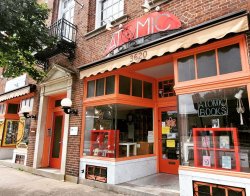Oprah Chooses Tayari Jones Novel for Book Club, Lost Manuscripts, and More
Book sales are up in Puerto Rico; a screen adaptation of John Updike’s Rabbit, Run novels in the works; New York Society Library’s borrowing records of famous writers; and other news.










